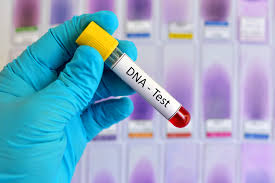It begins, as so many social tremors do, with a statistic. A recent report from Nigeria’s Smart DNA, the country’s leading forensic laboratory, revealed that one in four men who underwent paternity testing between July 2024 and June 2025 were not the biological fathers of the children in question. For firstborns, the figures were even more brutal: nearly two-thirds of disputed sons, and a significant share of daughters, were found to belong to another man. At first glance, this may seem a peculiarly Nigerian scandal; one more data point in the country’s turbulent debates about trust, family, and modernity. Yet Nigeria’s reckoning is not an isolated affair. It is part of a much larger global confrontation with the consequences of cheap, ubiquitous DNA testing – an innovation that is quietly destabilizing assumptions about kinship, identity, and fidelity.
Trust on Trial
At its heart, the DNA revolution is not simply about infidelity; it is about trust. In many societies, the firstborn child carries unique symbolic and economic weight, as heir to land, lineage, and legacy. When DNA tests reveal that these firstborns are most likely to be misattributed, as Smart DNA’s report did in Lagos, it is not merely a private heartbreak. It is a public crisis of legitimacy. The Nigerian figures are telling in another respect: 83.7% of tests were conducted not for legal battles, but for “peace of mind.” This points to a deeper reality; families no longer trust themselves. Husbands seek certainty, wives defend secrets, children become contested proofs of loyalty or betrayal. The family, once the bedrock of society, is being tested, literally and figuratively, at its most vulnerable seams.
Amid the outrage, one group is consistently overlooked: the children. They are the ones whose rights to truth, heritage, and identity are trampled when deception festers. A child has the right to know his or her biological lineage – not as a matter of gossip, but of legal and psychological necessity. Questions of inheritance, citizenship, and medical history all depend on genetic clarity. And yet, few countries have robust legal frameworks for what is now termed “paternity fraud.” In Nigeria, there are none. In the United States and Britain, courts wobble uneasily between the “best interest of the child” and the financial obligations of men who may not be biological fathers. The result is a murky patchwork of rulings, resentments, and lifelong scars.
A Global Reckoning
The figures vary across societies, but the pattern is unmistakable. In South Africa, academic studies estimate that up to 30% of tested fathers are raising children who are not biologically theirs. In the United States, the rate is lower – between 3% and 10% – yet even at that range, millions of men may be unknowingly raising non-biological children. In the United Kingdom, the rise of home DNA kits has unleashed what one family lawyer describes as “a tidal wave of unwanted truths,” with disputes spilling into the courts. What was once buried under the weight of silence, stigma, and social order is now exposed in the cold clarity of science. And as the data emerges, so too does the social disquiet.
Toward a DNA-Defined Future
What is to be done? Some advocate for mandatory DNA testing at birth – a radical proposition that would eliminate doubt at the outset and protect both fathers and children from years of deception. Others call for “paternity fraud laws,” criminalizing the concealment of true parentage. Still others argue for public health integration: routine DNA testing as part of family planning and medical documentation.
Nigeria, paradoxically, has an opportunity. By confronting the issue early and openly, it can craft laws and norms that other societies, still in denial, will eventually be forced to consider. As Smart DNA’s operations manager, Elizabeth Digia, observed, this is no longer about disputes – it is about certainty, documentation, and peace of mind.
The Truth Will Out
The deeper lesson may be that modernity itself is incompatible with the comforting fictions of old. For centuries, families were built not only on love, but on silence – strategic silences about affairs, indiscretions, and deceptions that were never meant to be uncovered. Science has shattered that silence. DNA does not negotiate. It does not bend to tradition or sentiment. It reveals, pitilessly, what is. And what it reveals, increasingly, is that the family – long idealized as a haven of trust – is in fact a fragile human contract, vulnerable to betrayal.
That truth may hurt. But it may also heal. For in forcing societies to confront the realities of lineage, fidelity, and rights, the DNA revolution may yet lay the groundwork for stronger, more honest families.
Until then, the statistic remains: one in four Nigerian men tested were not fathers after all. Tomorrow, in another country, it may be one in five. Or one in ten. The numbers vary. The implications do not.
The family is on trial. DNA is the witness. And truth, however brutal, is the verdict.





